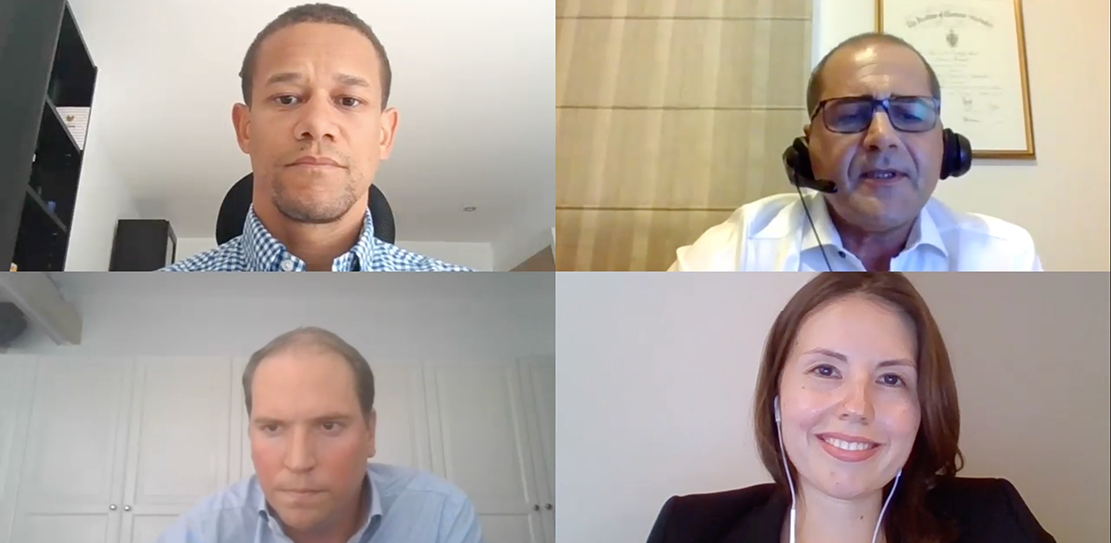Oct 05 | 2020
Stakeholders Need to Realize Pandemic-related Disruption is Here to Stay

By Carly Fields
The industry needs to wake up and wise up. As the project cargo and breakbulk sector enters the fourth quarter of 2020, stakeholders need to realize that pandemic-related disruption is here to stay, according to industry professionals.
Speaking at a Breakbulk365 webinar, Arnoud Dekkers, commercial director at 4D Supply Chain Consulting, said the industry’s focus needs to shift to the new normal.
“We really need to change the mindset, be more proactive and adapt to the new normal.” Dekkers was speaking at the opening webinar to a virtual Breakbulk Europe event held this week.
He said that companies today are asking a series of common questions:
- How long can our business sustain disruption?
- What will our industry look like in the next 12 months?
- How long will it take for our business to recover after Covid?
- What steps can be taken to provide organizations with the resilience to ensure the required level of continuity.
Other panelists noted that change is happening at a fast pace, with Javier Lopez Oliver, senior logistics project manager for Abengoa, explaining that the engineering, procurement and construction company is now managing supply chains in a much more efficient way. “The reality is that you don’t know where disruption is going to happen, so you have to manage the short and long supply chain at the same time,” he said.
Challenges for Carriers
Air and sea carriers on the panel spoke of the “numerous challenges” that they have faced since the start of the Covid-19 pandemic, acknowledging that no one had experience to draw on to address a crisis of this kind.
AAL Shipping Managing Director Kyriacos Panayides noted a significant drop in cargo demand with growth rates moving from positive to negative. “That has been a real impact for the whole MPV industry and we felt it from all industry sectors,” he said. However, he was more optimistic that positive growth would return in 2021.
Pointing up the potential bright spots, Panayides highlighted construction and renewables – particularly wind energy. However, project work in general is dependent on government stimulus, the impact of second waves of the pandemic and the discovery of a vaccine.
Ekaterina Andreeva, commercial director at Volga-Dnepr UK, said that she was optimistic for the project cargo sector, and noted that current volatility is dependent on individual countries and companies.
Volga Dnepr faced unusual competition during the pandemic: passenger aircraft transporting cargo in the passenger compartment, something that Andreeva described as the “new normal” for the company in 2020. Balancing out that competition was a new market for Volga Dnepr: transporting personal protective equipment.
“Our normal project cargoes completely stopped as people sat and waited,” Andreeva said. “We discovered a new market, PPE, a brand new segment that only started this year.”
She noted a gradual recovery for traditional cargoes from June and expected that trend to continue.
Treatment of Crews
Johan-Paul Verschuure, project director at Rebel Group, asked the two carriers on the panel to compare the treatment of air crew and pilots with ships’ crew and captains over the pandemic.
Andreeva noted that while it was unclear at the start of the pandemic how pilots would be treated, frequent testing – sometimes before and after a flight – was quickly put in place to ensure that they could continue to work across borders.
Contrast this to the roadblocks to crew changes for ship operators, an issue which has turned into a humanitarian crisis for fatigued crew who are working well beyond their contracted rotations. Panayides said that AAL has had some crew stuck on board for 12 months and has lobbied hard with governments to change the way they treat ships’ crews.
“The crew is the crucial element of the trade,” he said. “We have started to see unrest on our ships, with some crew being psychologically affected by the fact that they are unable to return to their family.”
A recording of the webinar, "How the Project Cargo Sector is Adapting to the New Normal," is available.
Related stories
Carriers Find Themselves in a Spot
Roger Strevens on How to Achieve Real Sustainability
Business Outlook Webinar Follow-up Q&A with Volga-Dnepr
Project Logistics 2030 (Part 1 of a 6-part series)
Subscribe to BreakbulkONE and receive more industry stories and updates around impact of COVID-19.
